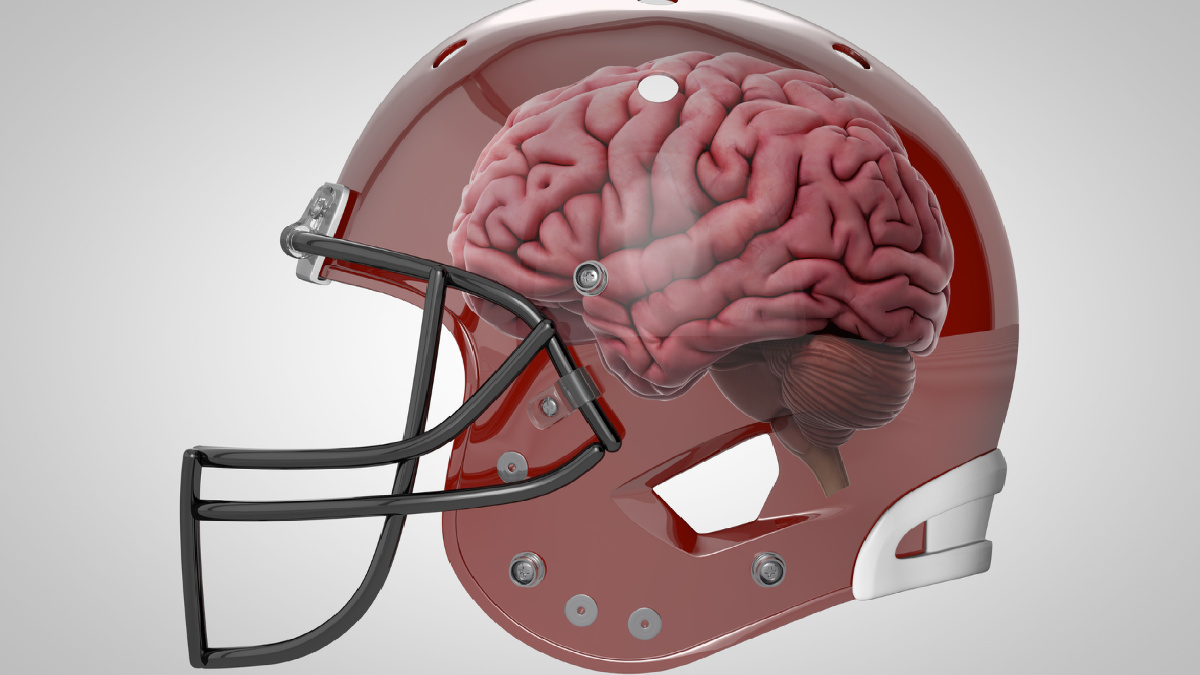Football Dementia Disease, also known as Chronic Traumatic Encephalopathy (CTE), is a neurodegenerative disease that is caused by repeated head injuries and concussions. This disease is prevalent among professional football players and has gained significant attention in recent years due to the severity of its symptoms and the potential long-term effects on players’ health. Symptoms of Football Dementia Disease include memory loss, confusion, depression, aggression, and suicidal thoughts, which can appear years or even decades after the initial head injury.
Research indicates that the risk of developing this disease is directly linked to the number of head injuries a person experiences during their lifetime. The NFL has taken several steps to address the issue, including implementing new rules and regulations to reduce the number of head injuries that players experience. Additionally, doctors and researchers are working to develop new diagnostic tools and treatments to help prevent and manage Football Dementia Disease. Despite these efforts, the long-term effects of this disease remain a significant concern for both players and their families.
Symptoms And Signs Of Football Dementia Disease
The symptoms and signs of this disease can vary depending on the severity of the condition and the individual affected. Some of the common symptoms of football dementia disease include memory loss, confusion, depression, anxiety, and aggression. In severe cases, individuals may experience difficulty with speech, movement, and coordination, and may develop symptoms similar to those seen in Parkinson’s disease. As the disease progresses, it can lead to dementia, which can severely impact an individual’s quality of life.
It is important to note that the symptoms of football dementia disease may not appear until years after the individual has stopped playing football. Therefore, it is crucial for current and former football players to be aware of the risks associated with head injuries and take steps to prevent them. This includes wearing appropriate protective gear and following proper techniques during play. Early diagnosis and treatment of football dementia disease can help slow down the progression of the disease and improve the individual’s quality of life.
Causes And Risk Factors Of Football Dementia Disease
The disease is caused by the accumulation of an abnormal protein called tau in the brain, which leads to the death of brain cells and the onset of symptoms such as memory loss, confusion, and depression. The risk factors for football dementia disease include the frequency and severity of head injuries, as well as the age at which they occur. Individuals who have experienced multiple concussions or subconcussive hits to the head are at a higher risk of developing CTE. Furthermore, the risk increases with the age at which the injuries occur, as the brain becomes less resilient and more susceptible to damage over time. Other risk factors include a history of substance abuse and genetics, as certain genetic mutations may increase an individual’s susceptibility to the disease.
Diagnosis And Testing For Football Dementia Disease
While Football Dementia have been prevalent among football players, doctors still find it hard to diagnose the disease. Currently, doctors rely on a combination of cognitive and physical tests, medical history, and brain imaging to diagnose the disease. These tests are not foolproof and can often miss early signs of the disease. However, researchers are working on developing more accurate diagnostic tools, such as blood tests and advanced brain imaging techniques, that could potentially detect the disease in its early stages. Early detection is crucial as it can lead to better treatment options and potentially slow the progression of the disease.
Treatment And Management Of Football Dementia Disease
Currently, there is no known cure for CTE, but there are various treatments and management strategies that can help alleviate symptoms and slow down the progression of the disease. One way to manage football dementia disease is through lifestyle changes, such as getting enough rest and avoiding activities that can cause further head trauma. Additionally, medication and therapy can be used to manage symptoms such as depression, anxiety, and aggression. It is important for individuals who have played football or experienced repeated head trauma to seek medical attention if they are experiencing symptoms of CTE, as early detection and treatment can help improve quality of life and slow down the progression of the disease.
Prevention And Lifestyle Changes For Football Dementia Disease
One of the primary ways to prevent the disease is to reduce the risk of head injuries. Football players must wear proper helmets and follow the rules of the game to avoid head collisions. Additionally, players should receive adequate training on how to tackle and avoid head-to-head contact. Lifestyle changes such as eating a healthy diet and exercising regularly can also help prevent the disease. Research shows that a healthy lifestyle can improve brain function and reduce the risk of cognitive decline.
Research And Advancements In Football Dementia Disease
Scientists are working towards developing new diagnostic tools and treatments for the disease, as well as preventative measures to reduce the risk of developing it in the first place. While there is still much to be done, the progress made in understanding and combating Football Dementia Disease is a positive step towards protecting the health and wellbeing of players both on and off the field.
The Importance Of Early Detection Of Football Dementia Disease
While the disease is commonly associated with professional athletes, it can also affect individuals who have engaged in recreational sports or suffered traumatic brain injuries. Early detection and awareness of the disease are crucial in preventing its progression and improving the quality of life of affected individuals. The importance of early detection and awareness of Football Dementia Disease cannot be overstated. It is essential that individuals who engage in sports that involve head injuries, such as football, are educated about the risks associated with these activities. Additionally, healthcare providers should be trained to recognize the early signs of the disease and provide appropriate treatment. By detecting the disease early, individuals can receive timely treatment that can slow down the progression of the disease and improve their quality of life. Furthermore, early detection can also help prevent the disease from spreading to other individuals, such as family members who may be at risk. Overall, early detection and awareness of Football Dementia Disease are essential in reducing the impact of the disease on individuals, families, and society as a whole.









